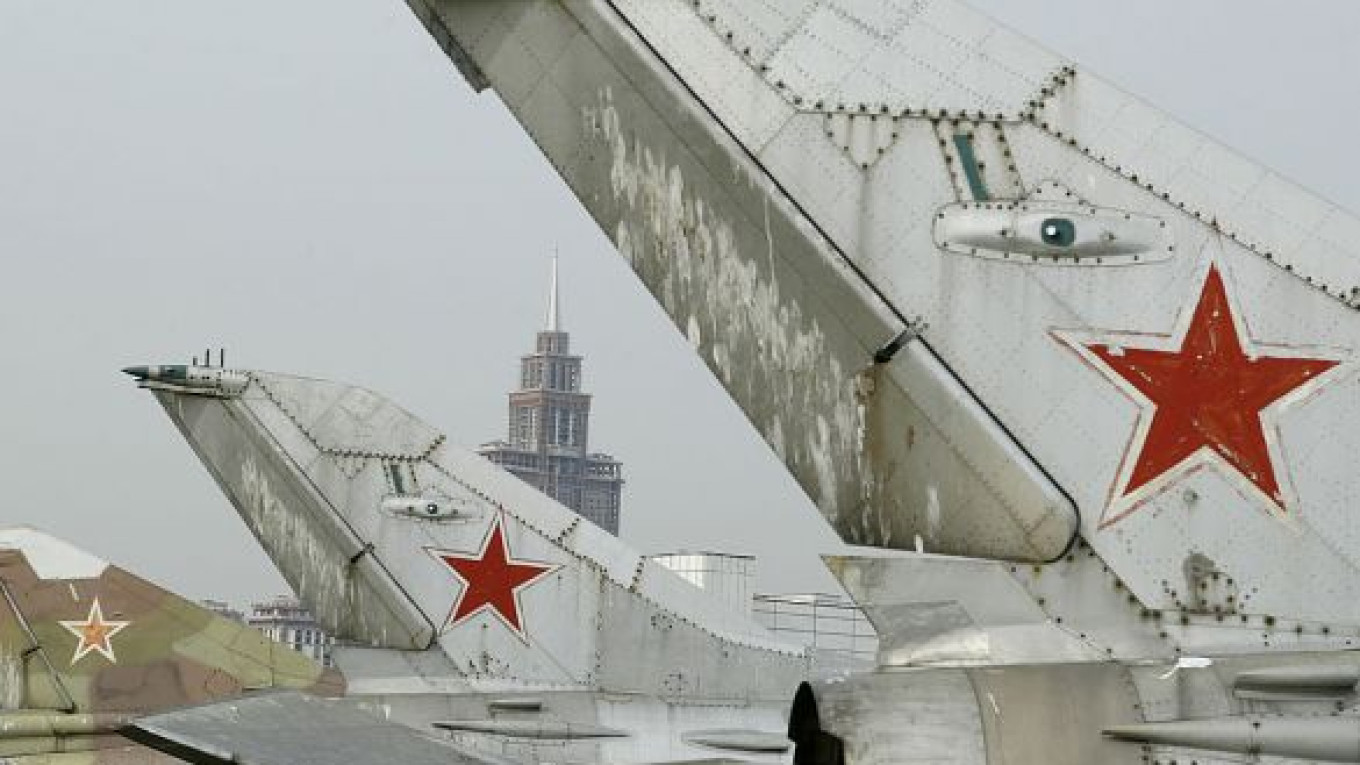Prime Minister Vladimir Putin ordered the military-industrial complex to form a special commission to oversee government contracts and spending on defense projects Monday.
Chief military-industrial adviser Igor Borovkov will head the commission and recruit government members from the Defense Ministry, Finance Ministry, Industry and Trade Ministry and various other government spheres, Putin said at a private conference following the Presidium on Monday.
The Defense Ministry has been mired in scandal over delays, unfulfilled orders, inflated prices, corruption allegations and general poor execution of orders.
President Dmitry Medvedev ordered Defense Minister Alexander Serdyukov to provide a report on the implementation of state defense orders for 2011.
"Find out what is going on. If the reports about the disruption of the state defense order are true, then those responsible for this should be punished regardless of their ranks and posts," Medvedev told Serdyukov in a July video conference call, RIA-Novosti reported.
Last week, Putin signed seven contracts totaling 280 billion rubles ($9.2 billion) with the Defense Ministry and the United Shipbuilding Corporation at the Sevmash shipyard in Severodvinsk, a step toward resolving the conflict between the ministry and the shipyard, at odds over delays and the cost of projects.
Putin gave one month to organize the documents for the commission, in time to monitor the 3,000 government defense projects slated for 2012, Borovkov said. The commission will monitor every stage of the government's defense projects, from drafting contracts to purchasing weapons.
The government allotted 20 trillion rubles to modernize Russia's armed forces in the next decade. Seventy percent of the country's troops and Navy should have modern weapons and equipment by 2020.
Meanwhile, Russia spends 2 billion rubles every year to store 20 million tons of old weapons, half of which have exceeded their service life.
To solve the problem, the government has allotted more than 39 billion rubles to a reprocessing program for expired weapons, Putin said Monday. By 2020, 600 strategic weapons, more than 500,000 regular arms and equipment and 140,000 rockets will be processed.
The 10 million tons of expired weapons that include guns, rockets and regular arms will be sold for scrap metal, Putin said. The weapons could provide 3.5 million tons of ferrous metals, 520,000 tons of nonferrous metals and 35 tons of precious metals, valued in total at 10.5 billion rubles.
"We must recycle them in a smart way," Putin said.
An Izvestia story published Monday reported that the Defense Ministry purchased nearly 10,000 badminton rackets and tens of thousands of shuttlecocks, citing Alexander Shchepelev, head of troop physical development at the Defense Ministry.
The Defense Ministry, however, published a statement on its web site later that day saying the Izvestia story was "surprising."
"Badminton is not a military sport in the armed forces of the Russian Federation, and its development does not figure in the program for the physical training of troops," the ministry's web site said.
Badminton gained attention in Russia after Medvedev published a video on his blog extolling the benefits of the game.


